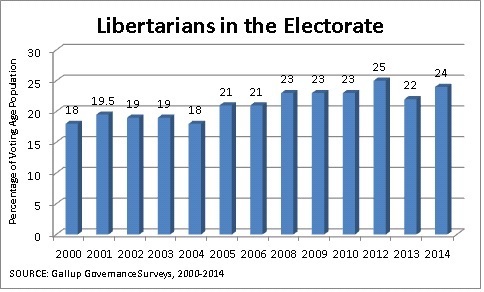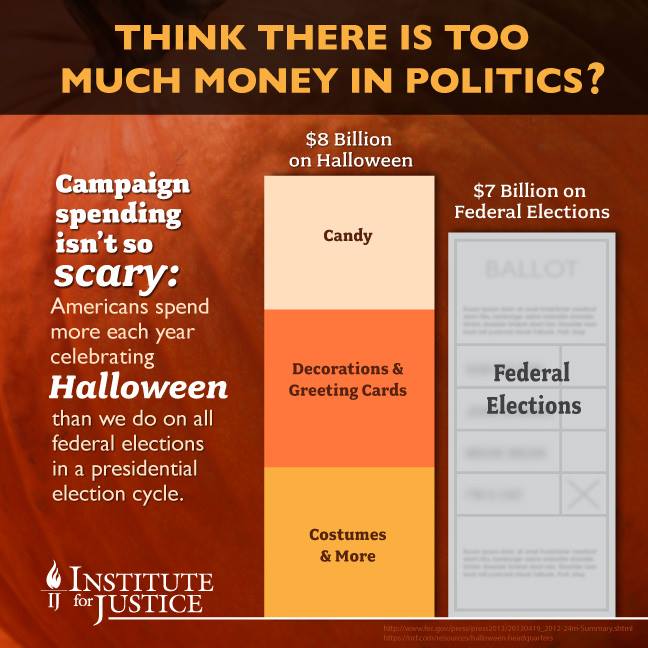Not These Guys Again! The Case for Term Limits
At NBCNews.com, I make the case for term limits in a video sidebar to Meet the Press.
For those who prefer print, I summarize my argument here (not all of which survived NBC’s editing):
Only 15 percent of Americans approve of Congress’s performance. Yet we’re about to have another election where more than 90 percent of incumbents are reelected. In fact, the most common reelection rate for House members over the past 30 years is 98 percent.
98 percent reelection—that’s what you expect to see in Russia, not in a democracy.
Americans don’t want a permanent ruling class of career politicians. But that’s what the power of incumbency and all the perks that incumbents give themselves are giving us.
We want a citizen legislature and a citizen Congress—a government of, by, and for the people.
To get that, we need term limits. We should limit members to three terms in the House and two terms in the Senate. Let more people serve. Let more people make the laws.
And let’s get some people who don’t want to make Congress a lifelong career.
Some say that term limits would deprive us of the skills of experienced lawmakers. Really? It’s the experienced legislators who gave us a $17 trillion national debt, and the endless war in Iraq, and a Veterans Affairs system that got no oversight, and massive government spying with no congressional oversight, and the Wall Street bailout.
Politicians go to Washington and they forget what it’s like to live under the laws they pass. As we’ve seen in some recent elections, they may not even keep a home in the district they represent.
The American Founders believed in rotation in office. They wanted lawmakers to live under the laws they passed—and wanted to draw the Congress from people who have been living under them.
For more on term limits, see the Cato Handbook for Congress, Ed Crane’s 1995 congressional testimony, or this very thoughtful article by Mark Petracca, “The Poison of Professional Politics.”
Posted on November 7, 2014 Posted to Cato@Liberty
David Boaz discusses whether members of Congress should have term limits on NBC Digital’s Make the Case
Posted on November 7, 2014 Posted to Cato@Liberty
Election 2014: The State of Libertarian Ideas and Prospects for the Next Congress – A Special Online Event
The 2014 midterm elections are being held at a time when libertarian ideas are ascending. But will more influence and media attention translate into electoral victories? Will the makeup of the next Congress be conducive or detrimental to the advancement of free markets and individual liberty? Join us for an election recap and discussion of the state of libertarian ideas in various races and prospects for the next Congress.
Posted on November 5, 2014 Posted to Cato@Liberty
Cato Connects: Election 2014
Cato’s David Boaz (@david_boaz) and John Samples (@SamplesatCato) discuss the 2014 elections and prospects for a more libertarian public policy in the coming years.
Video produced by Caleb O. Brown, Austin Bragg, Kevin Sennett and Tess Terrible.
Posted on November 5, 2014 Posted to Cato@Liberty
David Boaz discusses the next several years in the wake of the election on FBN’s The Independents
Posted on November 5, 2014 Posted to Cato@Liberty
Cato Connects: Election 2014
Cato’s David Boaz and John Samples evaluate the 2014 elections and prospects for a more libertarian public policy in the coming years.
Posted on November 5, 2014 Posted to Cato@Liberty
Is There a Libertarian Vote?
The Gallup Poll has a new estimate of the number of libertarians in the American electorate. In their 2014 Gallup Governance Survey they find that 24 percent of respondents can be characterized as libertarians (as compared to 27 percent conservative, 21 percent liberal, and 18 percent populist).
For more than 20 years now, the Gallup Poll has been using two questions to categorize respondents by ideology:
Some people think the government is trying to do too many things that should be left to individuals and businesses. Others think that government should do more to solve our country’s problems. Which comes closer to your own view?
Some people think the government should promote traditional values in our society. Others think the government should not favor any particular set of values. Which comes closer to your own view?
Here’s a graphic depiction of the number of respondents who gave libertarian answers to both questions in the Bush-Obama years:

Libertarians, who disagree with both Democrats and Republicans on major issues, have not been reliable voters for either party. They generally tend to vote Republican by about a two to one majority. But as David Kirby and I wrote in our 2010 study, “The Libertarian Vote in the Age of Obama”:
In 2004 libertarians swung away from Bush, anticipating the Democratic victories of 2006. In 2008, according to new data in this paper, libertarians voted against Barack Obama. Libertarians seem to be a lead indicator of trends in centrist, independent-minded voters. If libertarians continue to lead the independents away from Obama, Democrats will lose 2010 midterm elections they would otherwise win.
And of course the Democrats did have a bad 2010. If libertarian-leaning voters react against Obamacare, overregulation, endless wars, and the surveillance state, then Democrats are likely to have a bad 2014 as well. But Republican positions on immigration, gay marriage, and marijuana push libertarian voters, especially millennial libertarians away; that might account for the surprisingly weak showing of many Republicans in polls in a year when President Obama is unpopular and the economy remains dismal.
Read more about the libertarian vote in our original study or in our 2012 ebook.
Hat tip to Lydia Saad for the data and to Derek Lee and David Dewhurst for the chart.
Posted on November 2, 2014 Posted to Cato@Liberty
Big Money in Politics?
As we hear the usual frenzied concern about big money in politics, Cecilia Kang and Matea Gold offer an interesting fact in today’s Washington Post:
Total political advertising in 2014 is expected to reach a record $2.4 billion, up $100 million from four years ago, according to estimates by the Kantar Media research firm.
That sounds like a lot of money. But the first thing I notice is that the increase from 2010 is only about half the rate of inflation. Given the increasing scope of government, it might be surprising that the increase has been so minimal. But divided government may have caused some potential donors to see fewer opportunities and/or risks in the next couple of years.
The Institute for Justice offers another timely way to look at the magnitude of political spending:

Posted on November 1, 2014 Posted to Cato@Liberty



